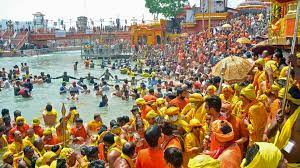Diwali, one of the most important festivals of Hindus, is not only celebrated in India but also in other countries. But this year, many are confused about whether to celebrate Diwali on October 31 or on November 1.
The confusion surrounding the date of Diwali in 2024 arises from the Amavasya Tithi or the new moon phase falling on both October 31 and November 1. This has led to different communities celebrating the festival on different days.
Also Read- Valmiki Jayanti Wishes 2024: Messages, Photos, History, and Significance
UNDERSTANDING THE DIWALI DATE CONFUSION
Diwali is traditionally celebrated on the Amavasya of the Kartik month. In 2024, the Amavasya Tithi begins at 3:52 pm on October 31 and ends at 6:16 pm on November 1, as per Drikpanchang.com.
While many in India will celebrate Diwali on October 31, several other communities are observing it on November 1.
Such was the gravity of this Diwali date confusion that more than 100 astrologers, religious scholars and Sanskrit scholars from across India organised a meeting, the ‘Deepawali Nirnay Dharmasabha’, at Central Sanskrit University of Jaipur to resolve the issue.
It was decided at the meeting that Diwali 2024 would be celebrated in India on October 31 since the Amavasya Tithi not only covers the entire Pradosh Kaal (two hours and 24 minutes after sunset) on this date but also the entire night. The auspicious time of Taurus and Leo ascendant for Lakshmi Puja would be available on this day.
On the other hand, on November 1, Amavasya Tithi ends at 6:16 pm, meaning that it would cover only a few minutes of Pradosh Kaal, offering too short a time to conduct Lakshmi Puja.
Read More: Diwali 2024 Calendar: What are the 5 Days of Diwali? Know everything here

The meeting was attended by the likes of Professor Rampal Shastri, former head of the astrology department of Maharaj Acharya Sanskrit College, Jaipur, and Professor Arknath Chaudhary, former vice-chancellor of Gujarat’s Somnath Sanskrit University.
Speaking to Dainik Bhaskar, Professor Arknath Chaudhary noted that as per the Rajmartand Granth, Lakshmi Puja should always be conducted on the day when the date is available in the Karmakaal. This should be done on Chaturdashi mixed Amavasya. According to this principle, Diwali can be held according to the scriptures only on October 31.
He also said that festive dates in India were decided on the basis of Surya Siddhanta, based on which there has never been any date confusion, even this year. The professor said that the Diwali date confusion this year had arisen due to the Panchangs prepared on the basis of Drik Ganit (a method of doing astronomical calculations).
However, in many other countries, such as Japan, Australia, New Zealand, Malaysia, and Singapore, Diwali will be celebrated on November 1.
Read More: Karwa Chauth 2024: Auspicious Puja And Moonrise Timings
DIWALI CELEBRATION TIMINGS
For those celebrating on October 31, the auspicious time for rituals and festivities will take place during the Pradosh Kaal (evening), which is considered highly favorable for worshipping Goddess Lakshmi, who is believed to bring prosperity and abundance.
In contrast, those observing Diwali on November 1 will also have a specific window for their celebrations, particularly between 5:36 pm and 6:16 pm, after which the Amavasya Tithi ends.
5-DAY DIWALI CELEBRATIONS
Diwali, also known as Deepavali, is a five-day festival that begins this year with Dhanteras on October 29, followed by Kali Chaudas on October 30, Chhoti Diwali (or Narak Chaturdashi) on October 31, and culminates with the main Diwali celebration on November 1.
The festival signifies the victory of light over darkness and good over evil, rooted in ancient Hindu mythology concerning Lord Rama’s return to Ayodhya after defeating Ravana.
Read More: Kojagiri Purnima 2024: Know Significance And Rituals Of This Lakshmi Puja
The differing dates for Diwali celebrations reflect not only regional practices but also the complexities of the lunar calendar. As communities prepare for this vibrant festival, they continue to uphold traditions that foster unity and joy during this significant time of year.
For more news like this visit Officenewz.com





































